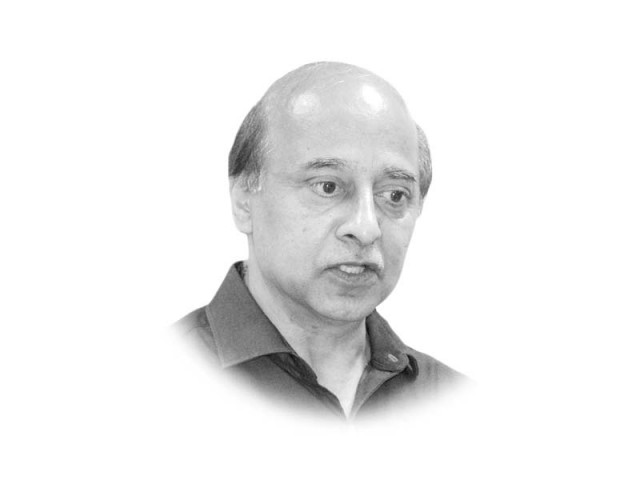Pak-Afghan ties: can CPEC be a CBM?
Senator McCain underlined the significance of enduring US commitment to Pakistan’s stability and economic growth

The writer heads the independent Centre for Research and Security Studies, Islamabad and is author of Pakistan: Pivot of Hizbut Tahrir’s Global Caliphate
This context has thrown up numerous challenges to all those who would want at least the bilateral dialogue to formally resume. The Afghan ambassador in Islamabad, Omar Zakhilwal is among those who would like to push for some semblance of normal talks between the two countries. Despite noises and the formal regret out of Kabul over the Torkham gate, it was reportedly the ambassador’s initiative that helped extinguish the raging fires which also helped Pakistan continue the construction of the gate. Undeterred by the deteriorating relations, Zakhilwal believes that despite all odds, the China-Pakistan Economic Corridor (CPEC) probably offers the best entry point for the resumption of the Pak-Afghan talks. A discussion and some understanding on offering a couple of CPEC alignments to Afghanistan could probably serve as a big confidence-building measure (CBM), according to the ambassador. He also underscores that India doesn't have the advantage that Pakistan has, particularly now that it's part of the CPEC. And its about time to turn this advantage into a real geopolitical opportunity.
For that, Zakhliwal proposes that Islamabad should couch its narrative on Afghanistan in geoeconomics i.e., trade and economics. Why cant we say the new measures at the border are being undertaken to control smuggling and facilitate the legal flow of goods and people through multiple international crossing points? In Kabul, Afghan officials have continued talking about Torkham being an unnecessary provocation and of broken promises (action against all anti-Afghan militants). They say that Pakistan being the bigger country needs peace more than any other actor. Afghans also insist that Kabul would recalibrate its views if it knows what Pakistan wants from it. Some of the grievances, it appears, stem more from mistrust than real factors. Tariq Fatemi, the adviser to the prime minister, for instance, told a recent gathering in Islamabad, comprising mostly of foreign diplomats and think tank members the following: “We are not merely going to connect Pakistan and China through the Gwadar-Kashgar motorway. Pakistan will build the Peshawar-Kabul motorway that will connect to the Kabul-Kunduz motorway, that will then get into [the central Asian nation of] Kyrgyzstan."
Fatemi underscored that Pakistan would work for peace and stability not as a favour to Afghanistan but as a favour to itself because Pakistan recognises that there can be no peace in the country as long as there is no peace in Afghanistan. Apparently, no Afghan official was present in this public seminar. It appears that a lack of conversation has led to Afghan misgivings on the CPEC. Pakistan probably should have been formally more articulate about how it wanted to help extend the CPEC to Central Asia via Afghanistan. Despite statistically proven marked progress against non-state actors of all hues, Pakistan has yet to prove much more. Despite that, it continues to occupy an important role in the regional matrix as expressed by one of the most important US senators, John McCain, in his recent article, in Financial Times, after his visit to both Pakistan and Afghanistan. The US mission in Afghanistan is immeasurably more difficult without Pakistan’s cooperation in taking on terrorists that operate across the Afghan-Pakistani border at will.
Senator McCain went on to underscore the importance of enhanced Pak-Afghan and Pak-US cooperation as a strategic imperative. To achieve real progress, he underlined the significance of enduring US commitment to Pakistan’s stability and economic growth and also urged Pakistan to eliminate havens for all terrorist groups. This alarming situation requires all stakeholders to recalibrate their positions to turn the narrative somewhat positive.
Published in The Express Tribune, August 3rd, 2016.
Like Opinion & Editorial on Facebook, follow @ETOpEd on Twitter to receive all updates on all our daily pieces.















COMMENTS
Comments are moderated and generally will be posted if they are on-topic and not abusive.
For more information, please see our Comments FAQ